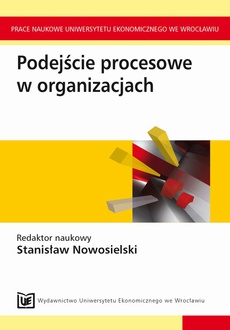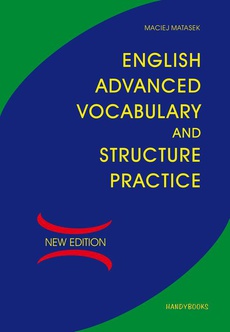POLECAMY
English Educational Policy
Contemporary Challenges in a Historical-Comparative Context
Autor:
Wydawca:
Format:
ibuk
The book concerns contemporary ideological discourses, preceded by a synthetic analysis of the roots of political changes in education in England. The author focusses on trends and stages of educational development from the tenth century to the post-war reform of the education system in England. Also presented are the neoliberal trend in English educational policy and the genesis of the 1998 educational reforms in England and their consequences up to 2013.
“The book constitutes an interesting proposal in the field of educational policy in a historical-comparative context [...]. A monograph-like approach to the subject and a combination of educational ideologies and historical traditions with the new challenges facing English education constitute the value of this book.”
Renata Nowakowska-Siuta, Dean of the Faculty of Education.
Head of the Department of Teaching and Education School.
Christian Theological Academy in Warsaw
| Rok wydania | 2017 |
|---|---|
| Liczba stron | 168 |
| Kategoria | Publikacje darmowe |
| Wydawca | Wydawnictwo Uniwersytetu Łódzkiego |
| ISBN-13 | 978-83-8088-543-1 |
| Numer wydania | 1 |
| Informacja o sprzedawcy | ePWN sp. z o.o. |
Ciekawe propozycje
Spis treści
| Introduction | 11 |
| 1.1. State of knowledge of the ideologies of education and subject of study | 11 |
| 1.2. Methodological justification of the research | 14 |
| 1.3. Research methodology | 15 |
| 1.3.1. The politolinguistic approach in the analysis of political rhetoric | 15 |
| 1.3.2. Analysis of documents and study of discourses in political rhetoric | 16 |
| Chapter 1. The political system of the state, the school system, and democracy | 19 |
| 1.1. The nature and content of the concept of “educational ideology” | 19 |
| 1.1.1. Development of the concept of “ideology”: its origin and content | 19 |
| 1.1.2. Features of contemporary ideology | 25 |
| 1.1.3. Ideology and political doctrine | 25 |
| 1.1.4. Pedagogical doctrine | 26 |
| 1.1.5. Classifications of political thought | 27 |
| 1.2. Democracy, the political system of the state and ideology education | 29 |
| 1.2.1. Development of the concept of “democracy” | 29 |
| 1.2.2. The political system: definition and development | 32 |
| 1.2.3. Fascist ideology and education | 32 |
| 1.2.3.1. The ideology of the Communism of Lenin and education | 34 |
| 1.2.3.2. Liberalism and education | 36 |
| 1.2.4. Conservatism and education | 37 |
| 1.3. Economy and state politics | 38 |
| 1.3.1. The functions of the state in a capitalist market economy in the context of economic policy | 41 |
| 1.4. Educational change and education policy | 41 |
| 1.4.1. The importance of educational change | 43 |
| 1.4.2. Reasons for initiating educational change and the associated processes | 44 |
| 1.4.2.1. Characteristics of change | 44 |
| 1.4.2.2. The teacher and educational change | 45 |
| 1.4.2.3. Planning educational change | 46 |
| Chapter 2. The evolution of educational thought and the ideology of education in the history of England from the tenth to the end of the seventeenth century | 51 |
| 2.1. The Church’s monopoly on teaching | 53 |
| 2.2. Bourgeois education | 54 |
| 2.3. Education of youth | 55 |
| 2.4. The beginnings of higher education: the Universities of Cambridge, Oxford and London | 56 |
| 2.5. The monopoly of the Church in teaching and church schools | 57 |
| 2.6. The historical background of the development of Protestantism in England | 60 |
| 2.6.1. The doctrine of the Church of England | 63 |
| 2.7. British political thought and education in the Age of Enlightenment | 63 |
| Chapter 3. Pedagogical thought and educational ideologies in the United Kingdom from 1707 to World War II | 65 |
| 3.1. The pedagogical views of Jean-Jacques Rousseau | 65 |
| 3.2. British political thought and education in the Age of Enlightenment | 66 |
| 3.3. The positivistic trend in British education | 67 |
| 3.4. The schools of mutual instruction of Lancaster and Bell | 68 |
| 3.5. The Chartist movement and educational changes associated with the creation of the London Working Men’s Association | 69 |
| 3.6. Pedagogical and educational thought of the European workers’ movement in England | 70 |
| 3.7. The English utopian socialism of Robert Owen | 71 |
| 3.8. Herbert Spencer and his pedagogical views | 71 |
| 3.9. The Elementary Education Act 1870 | 72 |
| 3.10. Directions and stages of development of public education in the United Kingdom: primary and secondary schools | 73 |
| 3.11. The structure of higher education | 75 |
| 3.12. Christian education in the nineteenth century | 75 |
| 3.13. Fisher Education Act | 77 |
| 3.14. John Dewey and progressive pedagogy | 80 |
| 3.14.1. The assumptions of pedagogy of John Dewey and his school | 81 |
| Chapter 4. Ideological contexts of the educational reforms of 1944 and 1988 in Britain and their consequences over the past twenty years | 83 |
| 4.1. The Education Act of 1944 | 83 |
| 4.1.1. Primary schools | 85 |
| 4.1.2. Secondary education | 85 |
| 4.1.2.1. Public schools | 85 |
| 4.1.2.2. Grammar school | 86 |
| 4.1.2.3. Technical schools | 87 |
| 4.1.2.4. Modern school | 88 |
| 4.1.2.5. Further education | 89 |
| 4.2. Open University and the neo-liberal free market principles in universities | 90 |
| 4.3. The Plowden Report | 91 |
| 4.4. Genesis of educational reform in England and Wales, 1998 | 93 |
| 4.5. The ideology of the New Right in Britain in the 1980s | 93 |
| 4.6. The ideology of neoliberalism and corporatism in the UK in the second period of educational change | 95 |
| 4.7. The Reform Act of 1988 in the light of the ideological contexts | 99 |
| 4.8. The consequences of the Education Reform Act of 1988 | 101 |
| 4.9. Post-Thatcher education reform in the UK | 103 |
| 4.10. Teachers’ careers | 104 |
| 4.11. Local Education Authorities | 105 |
| 4.12. Headmasters and school governing bodies | 106 |
| 4.13. The system of compulsory education for children between the ages of 5 to 16 years in England, Wales, and Northern Ireland | 107 |
| 4.14. Pre-school education | 108 |
| 4.15. Education of students from 16 to 19 years | 109 |
| 4.16. Neoliberalism and universities | 110 |
| 4.17. Summary | 112 |
| Chapter 5. The educational policy of the governments of Tony Blair, Gordon Brown, and David Cameron in the light of sociopolitical changes | 115 |
| 5.1. The political leadership of the Labour Party in the years 1997‒2007 | 115 |
| 5.2. The cultural revolution during the Tony Blair era | 116 |
| 5.3. Detraditionalization in conservative terms | 117 |
| 5.4. The most important achievements of David Blunkett, Secretary of State for Education and Employment, 1997‒2001 | 119 |
| 5.4.1. Social solutions and pro-family policy of the Labour Party | 119 |
| 5.4.2. Organizational solutions favorable to changes in British education | 121 |
| 5.4.3. Education Management | 122 |
| 5.4.4. The changing competencies of headmasters | 124 |
| 5.4.5. Changes in the field of early childhood education | 125 |
| 5.4.6. Education Action Zones | 126 |
| 5.4.7. Collecting data about students | 126 |
| 5.4.8. Adult education and the Learning Age | 127 |
| 5.4.9. Further education | 129 |
| 5.4.10. Higher education | 130 |
| 5.4.11. Summary | 132 |
| 5.5. Educational policy of Estelle Morris, 2001‒2002 | 132 |
| 5.6. Policy of Charles Clarke, Secretary of State for Education and Skills (October 2002‒December 2004) | 135 |
| 5.6.1. The National Strategy for Child Care (2004) | 135 |
| 5.6.2. Faith-based schools in Britain in the twenty-first century | 136 |
| 5.6.3. Every Child Matters | 137 |
| 5.7. Educational policy of Ruth Kelly, Secretary of State for Education and Skills (December 2004‒May 2006) | 139 |
| 5.8. Educational policy of Alan Johnson as Secretary of State for Education and Skills (May 2006‒June 2007) | 139 |
| 5.8.1. Summary | 140 |
| 5.9. Educational policy of Prime Minister Gordon Brown and the end of the Labour government | 141 |
| 5.9.1. Educational policy of Ed Balls (2007‒2010) | 142 |
| 5.10. The world of the early twenty-first century from the perspective of postmodernism | 144 |
| 5.10.1. Foreign and domestic policy of David Cameron | 147 |
| 5.10.2. Education policy of David Cameron | 148 |
| 5.10.3. Hidden curriculum, social inequalities and cultural reproduction in British education | 149 |
| 5.10.4. Schools and Colleges | 152 |
| 5.10.5. The perception of the teacher in education under the government of David Cameron | 154 |
| 5.10.6. Global “Fourth Way” of educational change | 155 |
| 5.10.7. Summary | 158 |
| Bibliography | 161 |

























